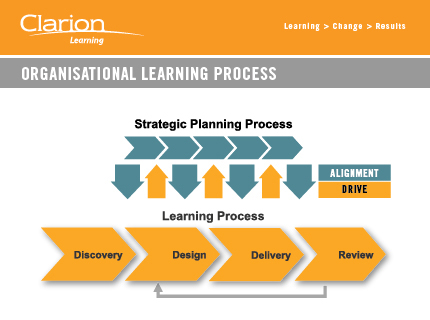Group Processes
'One thing is certain: we face years of profound changes.
It is futile to try to ignore the changes and to pretend that
tomorrow will be like yesterday, only more so. But to try to
anticipate the changes is equally unlikely to be successful.
The changes are not predictable. The only policy likely to succeed
- although it, too, is highly risky - is to try to make the future.'
- Peter F. Drucker
The pace of change is ever increasing and yet the ability of our organizations to lead effective change processes is still limited according to Peter Senge in 'The Dance of Change'. Senge suggests that we should stop viewing our companies as machines and thinking like mechanics and start thinking and acting like gardeners. Change has to take root and grow if it is to survive and produce fruit in the face of employee and management resistance.
Effective organizational learning processes enable individuals, groups and the organization to apply the learning within the system in which they operate and, by so doing, change the system itself.

Group processes with Clarion Learning consist of four phases (discovery, design, delivery and review). Our approach is aligned with and drives the business and strategic process of change.

Discovery
Without the commitment from a team of leaders, organizational learning interventions cannot succeed. Depending upon the level of intervention, that team of leaders is built at the local, regional or global level. A team of leaders is not simply a management group tasked with implementing the change. They must think, feel and act as a team. The first step in the discovery phase is to facilitate the development of that team. This may include the clarification of a change vision and strategy. In addition however, the leadership team must clearly understand that the degree and quality of their cooperation will have a direct impact on their groups and teams and the organizational culture and will ultimately determine the success or failure of the change initiative moving forward.
The second step of the discovery phase is to carry out a learning audit with key stakeholders in the organization. The goal of this audit is to analyse current perceptions and shared mindsets, assess the organizational culture and systems and identify potential areas of resistance and opportunities for leverage - a tipping point for change. A powerful tool that we often use during the perception gathering process is the Organizational Barometer; a dynamic real-time diagnosis of your organization's current thinking around change, need for change and change readiness.
The data that we collect is then presented to the leadership team together with our recommendations for the change learning intervention. It is also presented to all key stakeholders that participated in the audit to create awareness and insight, generate a sense of urgency and build positive momentum in the change process.
Design
When designing and developing group and organizational learning processes, we focus on three levels of the organization - the collective organizational level, the groups and teams that represent the organizational structure and the individual or personal level.
At the organizational level we focus on systems, structures and the distribution of power between organizational units. Which new mindset is required and what are the new behaviours that will flow from this mindset? How does the organizational culture support or hinder the business strategy? What can organizational units learn from each other and how can they cooperate with other more effectively?
At the group level we focus on new tasks, teams, self- and other perceptions, communication and cooperation. We use expectations exchanges and networking activities to clarify responsibilities and reporting lines and build trust in and between key groups. What kind of group dynamics can arise and how can they be managed?
At the individual level, we focus on people. They will need to deal with changed roles and responsibilities, their own hopes, fears and personal interests. Do they need to develop new skills, attitudes or behaviour? Are there real or felt threats or personal experiences causing resistance? Where do we need to challenge and where do we need to offer support in creating the desired mindset and behaviours?
Delivery
The implementation phase consists of a blend of large group interventions, leadership development, group and team learning, executive coaching, cross-cultural and skill-building workshops and feedback processes - depending on the specific learning needs.
Our core philosophy is that learning has the greatest impact when it is delivered with simplicity, creativity, in depth and through active involvement of the participants. This supports the process of change and creates the business results that our clients are looking for.
Review
Evaluating the impact of the learning on your business results - based on relevant Key Performance Indicators - is an effective way of measuring your Return on Investment (ROI) or as we say Return on Learning (ROL). In addition, the review phase is designed to anchor the change and the learning in your organizational culture. The review process provides you with an insight into the current state of the culture and the integration of change in your organization.
Group processes are not just a series of workshops but an integrated approach to organizational learning. We engage with your local, regional or global leadership team depending on the level of intervention. The discovery, design, delivery and review phases all have an impact on the mindsets and behaviours shared in your organization. This ensures the successful implementation of your strategic change process to create sustainable business results.
For more information contact us